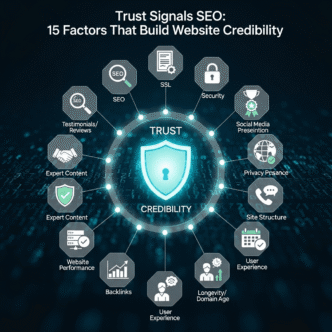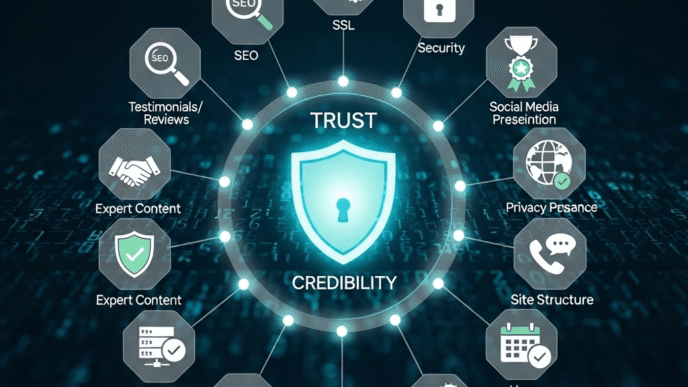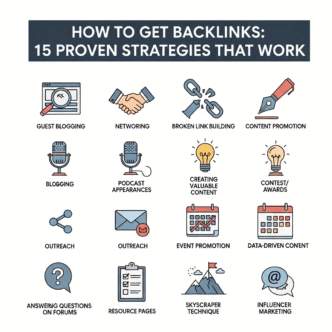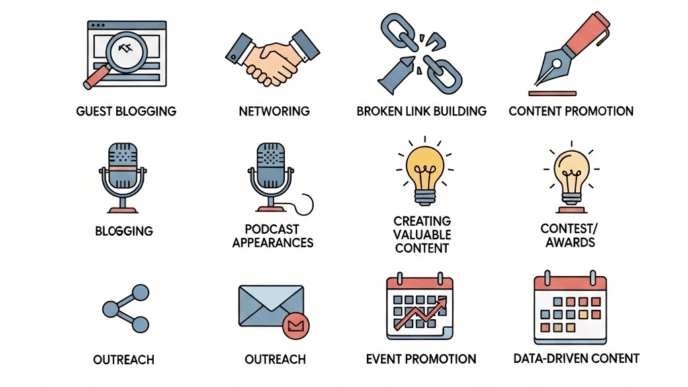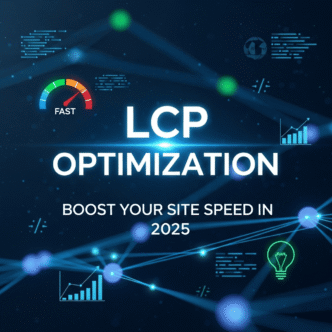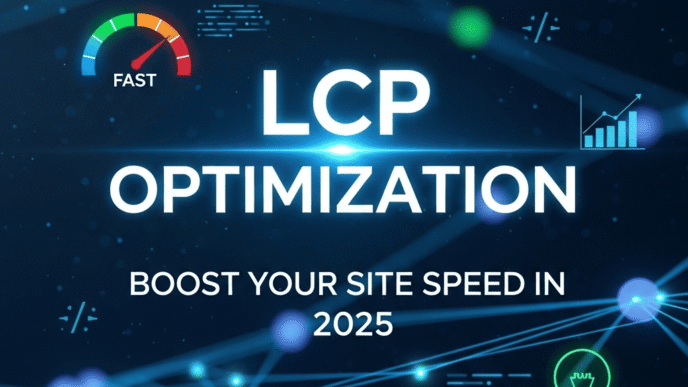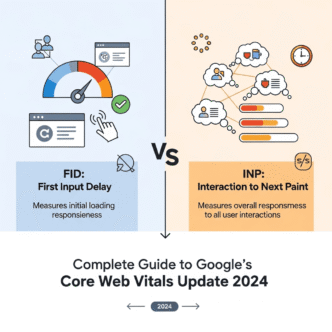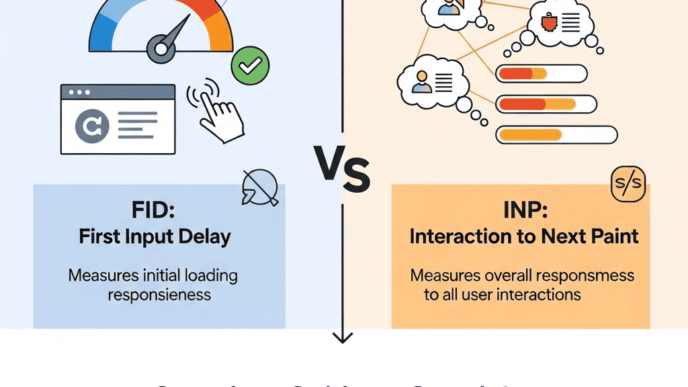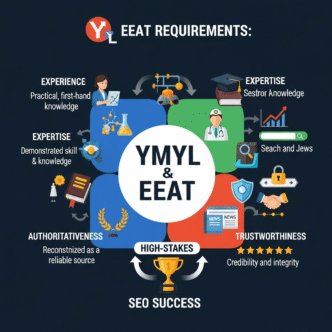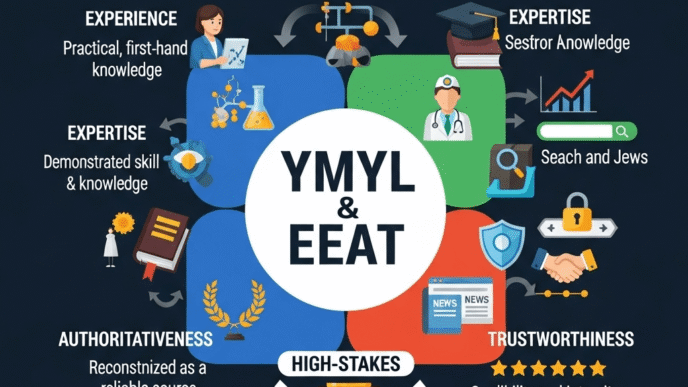Creating Expert Content That Google Loves (And Readers Actually Want to Share)
Ever published what you thought was brilliant content, only to watch it disappear into the digital void while your competitor’s mediocre post somehow ranks #1? Here’s the uncomfortable truth: Google doesn’t care how hard you worked on your content – they only care if it demonstrates genuine expertise.
If you’ve been struggling to create expert content SEO that actually moves the needle, you’re about to discover why most “expert” content fails miserably and how to create authoritative content that Google can’t ignore. Because let’s face it – in 2025, being knowledgeable isn’t enough. You need to prove it in ways that both algorithms and humans recognize.
The difference between content that ranks and content that tanks often comes down to one thing: demonstrable expertise that builds trust and authority with both users and search engines.
Table of Contents
Toggle
What Is Expert Content SEO and Why Does It Matter More Than Ever?
Expert content SEO refers to creating content that demonstrates deep knowledge, real-world experience, and credible authority in a way that search engines can recognize and reward. It’s not just about having expertise – it’s about communicating it effectively.
Think of expert content SEO as your way of proving to Google (and your audience) that you actually know what you’re talking about. In an era where AI can generate technically correct content in seconds, human expertise has become the ultimate differentiator.
The Expertise Crisis in Content Marketing
Here’s what most content creators get wrong: they think expertise is about sounding smart or using industry jargon. Wrong. Real content authority comes from solving problems that others can’t or won’t tackle.
Google’s algorithms have become incredibly sophisticated at detecting thin, regurgitated content. They’re looking for signals that indicate genuine industry expertise – and they’re getting better at finding it every day.
According to Google’s Search Quality Evaluator Guidelines, content demonstrating expertise requires clear author credentials, authoritative sourcing, and evidence of real-world experience in the subject matter.
Pro Tip: “The most effective expert content doesn’t just demonstrate knowledge – it demonstrates wisdom. Knowledge is knowing facts, but wisdom is understanding how to apply those facts to solve real problems.” This principle is central to building authentic expertise and authority.
How to Write Expert Content for SEO That Actually Converts
Understanding how to write expert content for SEO requires mastering both the technical and human elements of content creation.
The Expert Content Framework
Layer 1: Foundational Knowledge
- Accurate, up-to-date information
- Proper technical terminology
- Industry-standard best practices
Layer 2: Practical Application
- Real-world examples and case studies
- Step-by-step implementation guides
- Problem-solving methodologies
Layer 3: Unique Insights
- Original research or data analysis
- Personal experience and lessons learned
- Industry predictions and trend analysis
Key Elements of Authoritative Content
Depth Over Breadth: Cover topics comprehensively rather than skimming multiple subjects.
Original Perspective: Offer unique insights that readers can’t find elsewhere.
Practical Value: Provide actionable advice that readers can implement immediately.
Evidence-Based Claims: Support assertions with data, studies, or real-world examples.
Creating Authoritative Content That Ranks: The Strategic Approach
Creating authoritative content that ranks requires understanding what signals Google looks for when evaluating expertise.
Google’s Authority Evaluation Criteria
Content Depth: Comprehensive coverage that addresses user intent completely.
Source Quality: Citations from reputable, authoritative sources.
Author Credibility: Clear author information with relevant credentials.
User Engagement: High time on page, low bounce rates, social shares.
External Validation: Backlinks and mentions from other authoritative sites.
The Authority Building Process
Step 1: Establish Your Expertise Foundation
- Create detailed author bios highlighting relevant experience
- Showcase credentials, certifications, or professional background
- Link to published works, speaking engagements, or media appearances
Step 2: Demonstrate Practical Knowledge
- Share specific examples from your experience
- Include screenshots, data, or process documentation
- Admit mistakes and lessons learned (builds credibility)
Step 3: Provide Unique Value
- Conduct original research or surveys
- Offer insider insights not available elsewhere
- Create tools, templates, or resources
Demonstrating Expertise in Content Writing: Proven Techniques
Demonstrating expertise in content writing goes beyond claiming you’re an expert – you need to show it through specific techniques and approaches.
Content Techniques That Signal Expertise
| Technique | Expert Implementation | Impact on Authority |
|---|---|---|
| Case Studies | Detailed analysis with real data and outcomes | Very High |
| Original Research | Surveys, studies, or data analysis | Very High |
| Process Documentation | Step-by-step methodologies with screenshots | High |
| Expert Interviews | Quotes and insights from industry leaders | High |
| Trend Analysis | Predictions based on data and experience | Medium-High |
| Tool Reviews | Hands-on testing with detailed comparisons | Medium-High |
Real-World Example: Neil Patel’s Content Authority
Neil Patel’s blog demonstrates excellent expert writing through:
- Detailed Case Studies: Every major strategy includes real data from his experiments
- Tool Integration: He shows exactly how he uses tools, including screenshots
- Transparent Results: Shares both successes and failures with specific metrics
- Industry Connections: Features insights from other recognized experts
This approach has helped him build massive authority in digital marketing. Backlinko’s analysis of top-ranking content confirms that comprehensive, expert-driven content consistently outperforms generic articles by an average of 67%.
Advanced Expert Writing Techniques
The “Inside Baseball” Method: Share industry insights that only practitioners would know.
The “Data Deep-Dive” Approach: Analyze trends and patterns that others overlook.
The “Contrarian Perspective” Strategy: Challenge conventional wisdom with evidence-based arguments.
The “Behind-the-Scenes” Technique: Show your actual process, including mistakes and iterations.
Expert Content Creation Strategies That Build Long-Term Authority
Effective expert content creation strategies focus on building sustainable authority rather than quick wins.
The Authority Building Content Calendar
Monthly Deep-Dive Posts: Comprehensive guides on complex topics in your niche.
Weekly Industry Analysis: Commentary on trends, news, or developments.
Bi-weekly Case Studies: Detailed analysis of your work or industry examples.
Weekly Tool/Technique Reviews: Hands-on testing and honest assessments.
Content Formats That Demonstrate Subject Matter Expert Status
1. Original Research Publications
- Industry surveys with meaningful sample sizes
- Data analysis revealing new insights
- Comparative studies with actionable conclusions
2. Comprehensive Guides and Frameworks
- Step-by-step methodologies you’ve developed
- Decision trees or evaluation criteria
- Implementation checklists based on experience
3. Expert Roundups and Interviews
- Curated insights from multiple industry experts
- Your analysis and synthesis of expert opinions
- Follow-up commentary with your perspective
4. Live Content and Documentation
- Screen recordings of your actual work process
- Live problem-solving sessions
- Real-time industry event commentary
Pro Tip: “The best expert content comes from documenting your actual work process, not just explaining concepts. When you show people exactly how you solve problems, you demonstrate expertise in a way that can’t be faked or easily replicated.”
Building Authority Through Content Marketing: Advanced Strategies
Building authority through content marketing requires a systematic approach that extends beyond individual pieces of content.
The Thought Leadership Development Framework
Phase 1: Establish Baseline Credibility (Months 1-3)
- Publish comprehensive guides on fundamental topics
- Share detailed case studies from your experience
- Engage thoughtfully with industry discussions
Phase 2: Develop Unique Perspectives (Months 4-6)
- Conduct original research or analysis
- Challenge conventional wisdom with evidence
- Predict trends based on your observations
Phase 3: Lead Industry Conversations (Months 7+)
- Break news or reveal industry insights first
- Host expert panels or discussions
- Influence industry standards or practices
Content Distribution for Maximum Authority Impact
Owned Channels Strategy:
- Comprehensive blog posts on your website
- Email newsletters with exclusive insights
- Social media content that extends key points
Earned Media Approach:
- Guest posts on authoritative industry sites
- Podcast appearances sharing your expertise
- Speaking engagements at industry events
Community Engagement:
- Active participation in industry forums
- Thoughtful responses to expert discussions
- Mentoring or knowledge sharing in professional groups
Credible Content Creation: Technical Implementation
Creating credible content requires attention to both content quality and technical implementation details.
On-Page Content Credibility Signals
Author Information:
- Detailed author bios with relevant credentials
- Links to professional profiles and portfolios
- Photos and contact information for transparency
Source Attribution:
- Proper citations for all statistics and claims
- Links to original research and authoritative sources
- Publication dates and regular content updates
Expertise Indicators:
- Industry-specific terminology used correctly
- References to current tools and technologies
- Demonstration of practical, hands-on experience
Technical SEO for Expert Content
Schema Markup for Authority:
{
"@context": "https://schema.org",
"@type": "Article",
"author": {
"@type": "Person",
"name": "Expert Name",
"jobTitle": "Industry Specialist",
"worksFor": "Company Name",
"alumniOf": "University Name"
},
"expert": true
}
Content Structure Optimization:
- Clear headings that indicate expertise levels
- FAQ sections addressing expert-level questions
- Related content suggestions for deeper learning
Case Study: How Moz Built Content Authority in SEO
Moz’s approach to authoritative content includes:
Original Research: Their annual “State of SEO” reports provide unique industry data
Tool Integration: Every concept is demonstrated using their actual tools
Community Building: They foster expert discussions through their Q&A platform
Transparency: They share their methodology and admit when strategies don’t work
Results: Moz consistently ranks for high-competition SEO terms and is cited by other authorities.
Common Mistakes That Undermine Industry Expertise
Avoiding these mistakes is crucial for maintaining content credibility and expert status.
The “Fake It Till You Make It” Trap
Mistake: Claiming expertise in areas where you lack real experience. Why It Fails: Google and users can detect superficial knowledge. Solution: Focus on areas where you have genuine experience and gradually expand.
The “Information Regurgitation” Problem
Mistake: Simply repackaging existing content without adding new insights. Why It Fails: Doesn’t demonstrate unique expertise or value. Solution: Always add personal experience, original analysis, or unique perspective.
The “Jargon Overload” Issue
Mistake: Using complex terminology to sound expert without explaining concepts clearly. Why It Fails: Confuses readers and reduces engagement signals. Solution: Explain complex concepts in accessible terms while maintaining accuracy.
The “No-Evidence” Approach
Mistake: Making claims without supporting data or examples. Why It Fails: Reduces credibility and trust signals. Solution: Support every significant claim with evidence, examples, or citations.
Pro Tip: “The biggest mistake in expert content creation is trying to sound smart instead of being helpful. True expertise shines through when you make complex topics accessible and actionable for your audience.”
Measuring Expert Content SEO Success
Tracking the effectiveness of your expert content SEO requires monitoring both traditional SEO metrics and authority indicators.
Primary Authority Metrics
Search Performance:
- Rankings for expert-level keywords
- Featured snippet acquisitions
- “People Also Ask” appearances
- Knowledge panel eligibility
Engagement Indicators:
- Average time on page (should be higher for expert content)
- Pages per session from expert content
- Social shares and discussion generation
- Email signups from expert content
Authority Signals:
- Backlinks from other industry experts
- Mentions in industry publications
- Invitations to speak or contribute
- Questions from other professionals
Advanced Content Authority Tracking
Brand Authority Measurement:
- Brand searches related to your expertise area
- Direct traffic to your expert content
- Referral traffic from industry sites
- Media requests and expert quotes
Community Recognition:
- Engagement from verified industry professionals
- Mentions in expert roundups or lists
- Invitations to exclusive industry events
- Collaboration requests from other experts
ROI Calculation for Expert Content
Investment Tracking:
- Time spent on research and content creation
- Costs for original research or data acquisition
- Tools and resources for expert content production
Return Measurement:
- Lead generation from authority content
- Speaking or consulting opportunities
- Partnership and collaboration requests
- Long-term brand value increase
Subject Matter Expert Content for Different Industries
Subject matter expert content requirements vary significantly across industries and require tailored approaches.
Industry-Specific Authority Requirements
Technology and Software:
- Hands-on product demonstrations
- Code examples and technical implementations
- Performance benchmarks and testing results
- Integration guides and troubleshooting
Healthcare and Wellness:
- Professional credentials and certifications
- Citations from peer-reviewed research
- Clinical experience documentation
- Compliance with medical content guidelines
Finance and Investment:
- Professional licensing information
- Market analysis with supporting data
- Risk disclaimers and compliance statements
- Track record of successful strategies
Marketing and Business:
- Case studies with measurable results
- Tool and platform expertise demonstration
- Industry trend analysis and predictions
- Client testimonials and success stories
Adapting Content Strategy by Industry
B2B Technology Approach:
- Focus on implementation and integration challenges
- Provide detailed technical specifications
- Share architecture decisions and trade-offs
- Offer troubleshooting and optimization guides
Consumer Health Strategy:
- Emphasize safety and evidence-based approaches
- Include professional review and oversight
- Provide clear disclaimers about medical advice
- Focus on prevention and general wellness
Financial Services Method:
- Stress regulatory compliance and risk management
- Provide detailed disclaimers and disclosures
- Focus on education rather than specific advice
- Include multiple scenario analyses
Advanced Thought Leadership Strategies for 2025
Developing thought leadership in 2025 requires adapting to new technologies and changing user expectations.
Emerging Trends in Expert Content
AI-Augmented Expertise:
- Using AI for research while providing human interpretation
- Combining data analysis tools with expert insight
- Maintaining human authority in an AI-assisted world
Multi-Modal Expert Content:
- Video demonstrations of expertise
- Interactive tools and calculators
- Podcast series for industry discussion
- Live expert Q&A sessions
Community-Driven Authority:
- Building expert communities around your content
- Facilitating peer-to-peer expert discussions
- Crowdsourcing industry insights and trends
Future-Proofing Your Expert Content Strategy
Continuous Learning Integration:
- Document your ongoing education and skill development
- Share insights from industry conferences and training
- Adapt content based on industry evolution
Technology Adaptation:
- Embrace new content formats and platforms
- Integrate emerging tools for better expertise demonstration
- Stay current with industry technology trends
Relationship Building:
- Develop connections with other industry experts
- Collaborate on research and content projects
- Build a network of professional references and endorsements
Understanding how these strategies integrate with broader SEO principles is essential for long-term success. For comprehensive guidance on building sustainable authority, explore our detailed framework for Google’s E-E-A-T guidelines and authority building.
Practical Implementation: Your Expert Content Creation Action Plan
Ready to transform your content into authority-building assets? Here’s your step-by-step implementation guide.
Week 1-2: Foundation Assessment
Content Audit:
- Review existing content for expertise demonstration
- Identify gaps in authority signals
- Assess current author bio and credibility markers
- Analyze competitor expert content strategies
Expertise Inventory:
- Document your real-world experience and achievements
- Compile relevant credentials, certifications, and education
- Gather case studies, results, and proof points
- Identify unique insights or perspectives you can share
Month 1: Expert Content Infrastructure
Author Profile Enhancement:
- Create comprehensive author bios with credentials
- Set up professional social media profiles
- Develop an “About” page that demonstrates expertise
- Link to portfolio, case studies, and professional achievements
Content Quality Standards:
- Establish guidelines for citing sources and research
- Create templates for case studies and data presentation
- Develop a fact-checking and review process
- Set standards for original research and analysis
Month 2-3: Expert Content Production
High-Authority Content Creation:
- Publish 2-3 comprehensive, research-backed articles
- Conduct and publish original industry research
- Create detailed case studies from your experience
- Develop tools, templates, or frameworks
Community Engagement:
- Begin participating in industry forums and discussions
- Engage with other experts’ content thoughtfully
- Share insights on professional social media platforms
- Offer expert commentary on industry news and trends
Month 4+: Authority Scaling and Optimization
External Authority Building:
- Pitch guest posts to authoritative industry sites
- Seek speaking opportunities at conferences and events
- Participate in expert panels and roundtable discussions
- Offer expert quotes to journalists and industry publications
Content Optimization:
- Analyze performance of expert content pieces
- Update and expand successful authority content
- Develop content series that build on expertise themes
- Create advanced-level content for expert audiences
Pro Tip: “Building true content authority takes time – typically 6-12 months to see significant results. Focus on consistency and quality over quick wins. The expertise you demonstrate today becomes the foundation for your authority tomorrow.”
Tools and Resources for Credible Content Creation
Creating consistently credible content requires the right tools and resources to support your expertise demonstration.
Essential Tools for Expert Content Creation
Research and Data Tools:
- Google Scholar for academic research and peer-reviewed studies
- Statista for industry statistics and trends
- SurveyMonkey for conducting original research surveys
- Google Trends for topic and keyword analysis
Content Creation Tools:
- Surfer SEO for content optimization
- Clearscope for topic coverage analysis
- Canva for creating professional graphics and charts
- Loom for screen recordings and demonstrations
Authority Building Tools:
- HARO (Help a Reporter Out) for media opportunities and expert positioning
- LinkedIn for professional networking and thought leadership
- Ahrefs for competitor authority analysis
- Google Search Console for content performance tracking
Quality Assurance Resources
Fact-Checking Tools:
- Grammarly for grammar and style consistency
- Hemingway Editor for readability optimization
- Plagiarism checkers for originality verification
- Industry-specific fact-checking resources
Citation and Reference Tools:
- Zotero for research management
- Citation generators for proper source attribution
- Industry style guides for formatting standards
- Legal disclaimer templates for professional content
The foundation for all expert content success lies in understanding and implementing proven E-E-A-T principles that Google rewards. This comprehensive approach ensures your expertise translates into both search visibility and audience trust.
Final Verdict: Mastering Expert Content That Dominates Search Results
Creating expert content SEO that Google loves isn’t about gaming algorithms or stuffing keywords – it’s about genuinely becoming the authority you want to be recognized as.
The Authority Content Success Formula
Genuine Expertise + Clear Communication + Consistent Value = Long-Term Authority
Key Success Factors:
- Authenticity: Build content around real experience and knowledge
- Depth: Go beyond surface-level advice to provide actionable insights
- Evidence: Support claims with data, examples, and real-world results
- Consistency: Regularly demonstrate expertise across multiple content pieces
- Community: Engage with other experts and build professional relationships
What This Means for Your Content Strategy
The content landscape has shifted dramatically. Generic, AI-generated content is becoming commoditized, while genuine expertise and human insight are becoming more valuable than ever.
The winners in 2025 will be those who:
- Combine their real-world experience with strategic content creation
- Use technology to enhance rather than replace human expertise
- Build authentic relationships within their industry communities
- Consistently deliver value that only a true expert can provide
Your Expert Content Success Roadmap
Start with authenticity: Build content around your genuine expertise and experience, not what you think will rank well.
Focus on value: Every piece of content should solve a real problem or provide insights readers can’t find elsewhere.
Document your process: Show your work, share your methodology, and be transparent about your approach.
Engage with your community: Authority isn’t built in isolation – it’s developed through relationships and recognition from peers.
Stay committed to quality: Expert content takes more time and effort than generic content, but the long-term rewards are exponentially greater.
Ready to implement a complete authority-building strategy? Master the full framework with our comprehensive guide to building trust and authority through Google’s E-E-A-T guidelines.
The age of superficial content is over. The future belongs to those who can demonstrate real expertise in ways that both search engines and humans can recognize and value. Your expertise is your competitive advantage – now you know how to leverage it.
This comprehensive guide on creating expert content represents current best practices for building authority and credibility in 2025. Implement these strategies consistently, and watch your content authority grow along with your search rankings.



